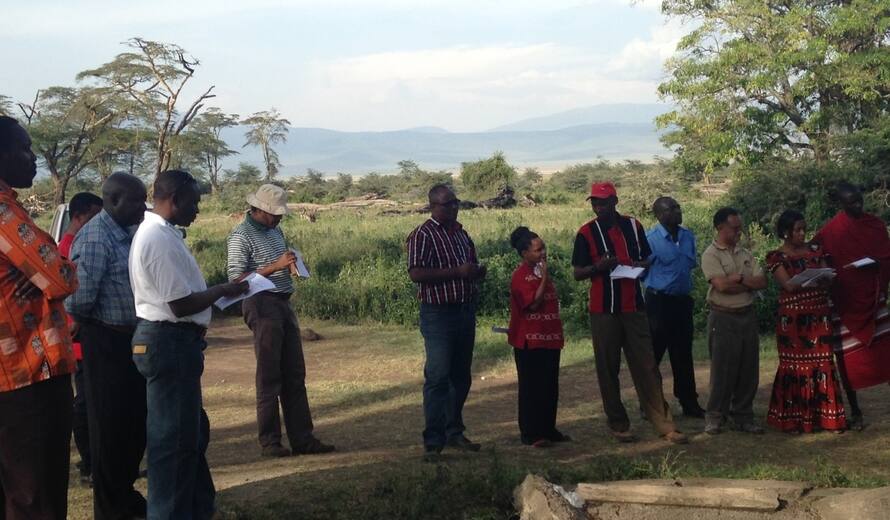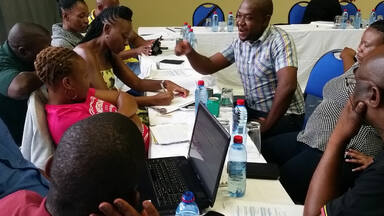Ngorongoro Conservation Area sets path for sustainable tourism
Ngorongoro Conservation Area joins Lake Malawi National Park, Maloti-Drakensberg Park (South Africa and Lesotho) and Mosi-oa-Tunya/Victoria Falls (Zambia and Zimbabwe) in strategic planning for sustainable tourism.
The first capacity building workshop in sustainable tourism for the World Heritage site managers, community representatives and tourism industry stakeholders was held at the Ngorongoro Conservation Area in Tanzania from 10 to 14 March 2015. The event was hosted by the Ngorongoro Conservation Area Authority. It marked the end of the first phase of a project to develop a sustainable tourism strategy in four Africa Nature sites launched by the World Heritage and Sustainable Tourism Programme of UNESCO.
Similar workshops were organized earlier this year for the site managers of Mosi-oa-Tunya/Victoria Falls in Zambia and Zimbabwe (22-24 January), Maloti-Drakensberg Park in South Africa and Lesotho (18-20 February) and Lake Malawi National Park (7-9 March). Action plans were developed to steer the process going forward.
Over the coming months, the World Heritage stakeholders will be developing a tourism strategy for their destination which will be consolidated during the second phase of the project from June to September 2015.
The structure of the workshops is based on the capacity building tool (“How To” Guides) developed for UNESCO by Rebanks Consulting. The toolkit is specifically designed and oriented towards development of sustainable tourism strategy at the World Heritage sites. An analytical framework has been developed to accompany the tool and is being tested to provide a sustainable tourism baseline for ongoing assessment.
The African World Heritage Fund is spearheading the implementation of the project in South Africa, Zambia and Malawi working closely with the UNESCO World Heritage Centre and the UNESCO Harare Office. The UNESCO Dar Es Salaam Office is leading the implementation of the project for Ngorongoro Conservation Area.
Funding for the project is made possible by the generous support of the Government of Flanders (Belgium), the IRIS Foundation and a contribution of the Deliver as One fund of Tanzania.
For more information
Please contact
Mr Peter DeBrine p.debrine@unesco.org,
Ms Pamela Mac Quilkan PamelaM4@awhf.net
and Zulmira Rodrigues z.rodrigues@unesco.org



